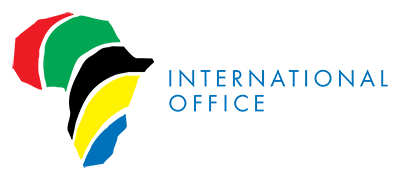Each semester, before teaching begins, the International Office offers an orientation programme to welcome new international students. The programme consists of fun activities and useful information sessions to help acquaint you with UCT and Cape Town. You will learn about UCT student support services, receive academic advice and have an opportunity to begin making new friends.
Course enrolment and registration begin during Orientation. Once you’ve registered, you’ll be issued with your UCT student card giving you access to all student facilities including UCT Libraries, the wifi network (eduroam), Sports Centre and gym facilities. You'll also be able to take the UCT Shuttle free student transportation service.
Whether it’s helping you prepare for your arrival, settling in and making new friends, or discovering the wealth of experiences that UCT has to offer, we’re here to support you in settling into campus life.
In 2023, we launch our International Student Buddy Programme. with the aim of supporting new international students settling into student life at the University of Cape Town.
We recognise that coming to a new place can be daunting and for this reason the Buddy Programme was created for new internationals to be supported by current students, both local and international. This voluntary programme allows for exciting inter-cultural exchanges between students from different backgrounds. The Buddy Leader (or Ambassador) is meant to journey alongside the new student (Buddy) and support them by meeting monthly to check on how they are doing, guide them on where to find information or help that they may be needing, and refer them to the International Office or other relevant UCT office to assist where needed.
UCT students who sign up for this programme as Buddy Leaders are eligible for the UCT Plus Leadership programme if they complete at least 35 hours of service and fulfil the monthly and annual reporting requirements.
UCT rewards extra-curricular contributions my recording voluntary hours toward servant leadership on students’ transcript record.
You’ll learn more about the Buddy Programme and have an opportunity to sign up during orientation week.
Once in Cape Town
Weather in Cape Town
Cape Town’s weather is changeable. Most buildings are not centrally heated or cooled. Rainproof jackets are advisable for the wet winter season from May to August (average temperatures – low 3°C/38°F; high 15°C/59°F). Hats and sunscreen are advisable for the summer season October to March (average temperatures – low 15°C/59°F; High 30°C/86°F).
Look at Cape Town’s weather here to get some idea of what to pack for the time period you will be in Cape Town.
Getting to know your way around UCT and Cape Town
The University is located in a beautiful area in the Cape Peninsula - on the slopes of Table Mountain, with panoramic views and easy access to the city of Cape Town.
South Africa’s history makes Cape Town a very interesting cultural tourism city. If you want to explore and understand South Africa’s past, there are a number of organised tours that will take you into the Bo-Kaap (the Malay Quarter), District Six, Langa, Gugulethu and Khayelitsha. Or take a trip to Robben Island from the V&A Waterfront and visit Table Mountain on the cable car.
To learn more about what Cape Town has to offer, go to Cape Town Travel or The Inside Guide.
Student Support Services
1. Students with physical or learning disabilities who may require extra time
Students with physical or learning disabilities which affect performance under test or examination conditions may qualify for specified accommodations or an extra time concession. Contact us for advice in accessing this service. There are specific application requirements and submission timelines to apply to be considered for special concessions. Make sure to write to us in good time to receive the relevant information. To contact Disability Service directly, write to: psychologist.disabilityservice@uct.ac.za
2. UCT Clubs and societies
UCT has over 100 student clubs and societies reflecting a wide range of interests from academic, religious and cultural to social and political activities and a variety of sports or outdoor activities.
3. Internationalisation at home
Throughout the year we collaborate with the Student Representative Council, international student societies and different departments within the university to organise a variety of activities geared towards making incoming international students’ experiences at UCT as enriching as possible. These programmes promote diversity and have a strong cultural element to foster internationalisation and social integration. Celebrations and debates that bring local and international students together are arranged to mark certain days such as Africa Day in May or Heritage Day in September. International full degree and visiting students are encouraged to engage with local students and enjoy all the activities that UCT and Cape Town have to offer. There are more than 100 student societies and organisations at UCT reflecting a wide range of interests, including academic, religious, cultural, social and political activities.
